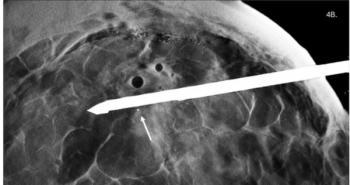
Philips recruits MI partner
Biotechnology firm CellPoint of Englewood, CO, is collaborating with Philips Medical Systems to optimize an advanced molecular imaging agent for use on the Dutch company's Skylight gantryless gamma camera. The joint goal is to develop a cost-effective,
Biotechnology firm CellPoint of Englewood, CO, is collaborating with Philips Medical Systems to optimize an advanced molecular imaging agent for use on the Dutch company's Skylight gantryless gamma camera. The joint goal is to develop a cost-effective, readily accessible technology for diagnosing cancer and prescreening patients for therapy. The focus of the agreement is CellPoint's ethylenedicysteine (EC) drug conjugate, which chemically links tissue-specific ligands (such as hormones, proteins, peptides, and glucose analogues) or pharmaceutical compounds to radioisotopes. The combined agents are being designed for cancer diagnosis and treatment. The two companies will collaborate on CellPoint's first molecular imaging agent, Tc-99m-EC-deoxyglucose, which allows deoxyglucose to be labeled with technetium-99m. Such unions with Tc-99m have been difficult to forge because the radioisotope is resistant to currently available coupling compounds. EC promises to overcome that difficulty. Philips and CellPoint will share clinical trial costs to develop this technology, according to executives at the companies. Phase I clinical studies began April 2003 at the University of Texas M. D. Anderson Cancer Center in Houston. Philips plans to review trial data and determine whether adjustments in acquisition protocols or postprocessing are needed to improve image quality.
Newsletter
Stay at the forefront of radiology with the Diagnostic Imaging newsletter, delivering the latest news, clinical insights, and imaging advancements for today’s radiologists.














